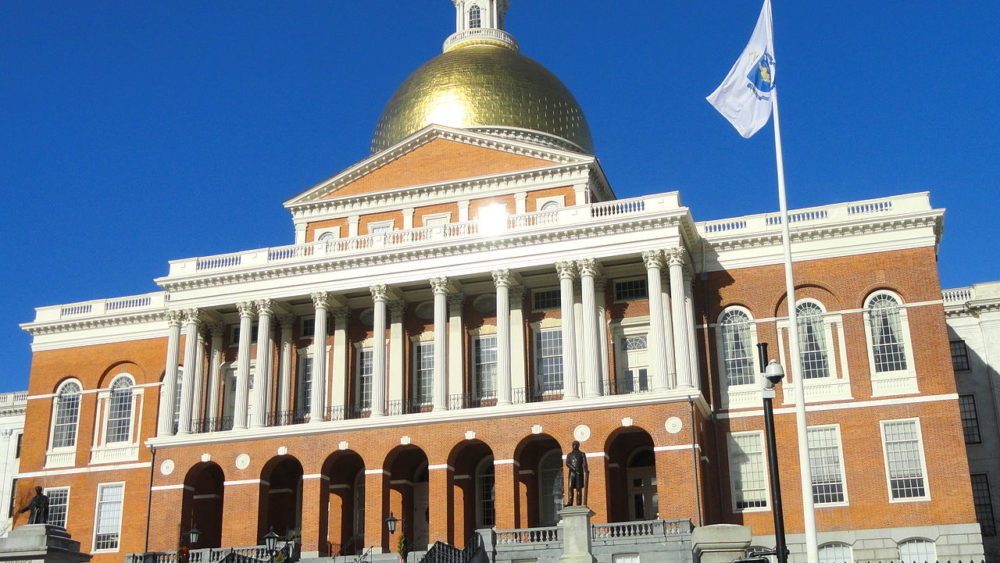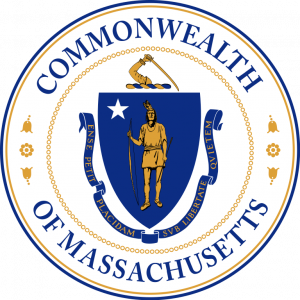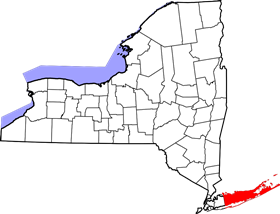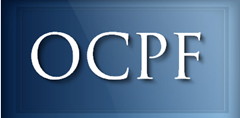
Boston Financial District - by Nelson48
The search committee for the Office of Campaign and Political Finance has named William Campbell as the new director for the independent agency. The panel has been searching for a new director for the OCPF since Mike Sullivan retired in […]
The search committee for the Office of Campaign and Political Finance has named William Campbell as the new director for the independent agency.
The panel has been searching for a new director for the OCPF since Mike Sullivan retired in 2019 after serving as director since 1994.
Campbell is the current Woburn city clerk and will lead the independent agency administering the state’s campaign finance and public financing laws.
December 2, 2019 •
Massachusetts Expands Campaign Finance Depository System of Reporting

Massachusetts Capitol Building
On November 26, Massachusetts Gov. Charlie Baker signed a new campaign finance bill into law. The bill amends the state’s law by now requiring House, Senate and all mayoral candidates to use the depository system of campaign finance reporting. According […]
On November 26, Massachusetts Gov. Charlie Baker signed a new campaign finance bill into law. The bill amends the state’s law by now requiring House, Senate and all mayoral candidates to use the depository system of campaign finance reporting.
According to the Office of Campaign and Political Finance (OPCF), “Nearly 500 House and Senate candidates will transition into the depository campaign finance reporting system, as well as about 100 mayoral candidates in cities of 65,000 or less.” House Bill 4087 also requires banks to file monthly disclosure reports on behalf of candidates and certain committees.
Previously, the disclosures were required twice a month. The bill also mandates the OCPF establish regulations concerning social media and its use by appointed public employees.
Additionally, the bill establishes a commission to study the use of campaign funds for family and child care.
May 6, 2019 •
Massachusetts Campaign Finance Updates Delayed

Massachusetts Capitol Building
The Massachusetts Office of Campaign and Political Finance (OCPF) missed a self-imposed deadline this week to release updated regulations limiting political contributions from labor unions. A spokesperson for the agency said it could take several more weeks to work out […]
The Massachusetts Office of Campaign and Political Finance (OCPF) missed a self-imposed deadline this week to release updated regulations limiting political contributions from labor unions.
A spokesperson for the agency said it could take several more weeks to work out the details and release the new rules.
The push to update a labor union contribution loophole comes after a 2018 court ruling upholding the state’s ban on corporate contributions.
The ruling acknowledged the significant difference for labor unions.
The draft regulations released in March seek to reduce the amount of money a union can contribute to a candidate annually from $15,000 to $1,000.
October 22, 2018 •
Lawsuit Filed Over Massachusetts Campaign Finance Law
The Massachusetts Fiscal Alliance filed a lawsuit against the Office of Campaign and Political Finance (OCPF) alleging that the state’s campaign finance laws are unconstitutional. The law in question requires ads within 90 days of a general election naming any […]
 The Massachusetts Fiscal Alliance filed a lawsuit against the Office of Campaign and Political Finance (OCPF) alleging that the state’s campaign finance laws are unconstitutional.
The Massachusetts Fiscal Alliance filed a lawsuit against the Office of Campaign and Political Finance (OCPF) alleging that the state’s campaign finance laws are unconstitutional.
The law in question requires ads within 90 days of a general election naming any candidate or ballot question to include a statement from the sponsor’s chief executive officer, chairman, principal officer, or business manager.
The law covers television ads, radio, billboards, and print and must also include a list of the organization’s top five contributors.
The Massachusetts Fiscal Alliance asserts these requirements may lead to biased judgments about an ad based on the named officer’s sex, gender, race, or other personal characteristics.
Additionally, they argue the requirements imply the donors funded the ad when they only contributed money to support the organization’s overall mission.
The OCPF has declined to comment on the lawsuit.
December 15, 2016 •
Arguments Heard in Lawsuit Challenging MA Law Banning Corporate Contributions
Oral arguments were heard last week in a 2015 lawsuit filed in Massachusetts Suffolk County Superior Court challenging state laws allowing unions to make political contributions while barring corporations from doing the same. The lawsuit is being brought by the […]
 Oral arguments were heard last week in a 2015 lawsuit filed in Massachusetts Suffolk County Superior Court challenging state laws allowing unions to make political contributions while barring corporations from doing the same.
Oral arguments were heard last week in a 2015 lawsuit filed in Massachusetts Suffolk County Superior Court challenging state laws allowing unions to make political contributions while barring corporations from doing the same.
The lawsuit is being brought by the Scharf-Norton Center for Constitutional Litigation at the Goldwater Institute on behalf of two state business corporations against Michael Sullivan, the director of the Office of Campaign and Political Finance (OCPF), which enforces the law. In 1A AUTO, INC. v Sullivan, the plaintiffs allege, “There is no legitimate justification for allowing unions to contribute thousands of dollars to candidates, parties, and political committees, while completely banning any contributions from businesses.” The plaintiffs argue the law violates “equal protection, free speech, and free association protected by the Massachusetts and United States constitutions” and are seeking a permanent injunction preventing the OCPF from enforcing the law banning corporate contributions.
Both parties made their arguments on December 7 in front of Judge Paul Wilson, who will decide the previously filed motions for summary judgement.
April 14, 2016 •
MA OCPF Issues Regulation Concerning Coordination
On April 8, the Massachusetts Office of Campaign and Political Finance (OCPF) issued new regulations concerning coordination between candidates and independent expenditure-only political committees. The new regulations clarify definitions in the law for the terms “independent expenditure” and “electioneering communication” […]
 On April 8, the Massachusetts Office of Campaign and Political Finance (OCPF) issued new regulations concerning coordination between candidates and independent expenditure-only political committees. The new regulations clarify definitions in the law for the terms “independent expenditure” and “electioneering communication” and try to “define situations in which a presumption of coordination exists between a candidate and an outside spender who is expressly advocating on the candidate’s behalf,” according to the OCPF.
On April 8, the Massachusetts Office of Campaign and Political Finance (OCPF) issued new regulations concerning coordination between candidates and independent expenditure-only political committees. The new regulations clarify definitions in the law for the terms “independent expenditure” and “electioneering communication” and try to “define situations in which a presumption of coordination exists between a candidate and an outside spender who is expressly advocating on the candidate’s behalf,” according to the OCPF.
The OCPF has said the regulations were created in response to frequent inquiries about the rules of coordination between candidates and other political entities.
February 29, 2016 •
MA OCPF Seeks to Clarify Differences Between Coordinated and Independent Political Expenditures
On February 24, the Massachusetts Office of Campaign and Political Finance (OCPF) held a public hearing on proposed regulations to clarify political expenditure coordination between entities. The proposed regulations seek to elucidate the differences between independent and coordinated expenditures, including […]
 On February 24, the Massachusetts Office of Campaign and Political Finance (OCPF) held a public hearing on proposed regulations to clarify political expenditure coordination between entities. The proposed regulations seek to elucidate the differences between independent and coordinated expenditures, including “situations in which a presumption of coordination exists between a candidate and an outside spender who is expressly advocating on the candidate’s behalf,” according to an OCPF press release. “We get complaints all the time, so we’re trying to create a roadmap,” said OCPF Director Michael Sullivan, as reported in the New Boston Post. Written comments about the draft regulations will be accepted until 5 p.m. on March 4.
On February 24, the Massachusetts Office of Campaign and Political Finance (OCPF) held a public hearing on proposed regulations to clarify political expenditure coordination between entities. The proposed regulations seek to elucidate the differences between independent and coordinated expenditures, including “situations in which a presumption of coordination exists between a candidate and an outside spender who is expressly advocating on the candidate’s behalf,” according to an OCPF press release. “We get complaints all the time, so we’re trying to create a roadmap,” said OCPF Director Michael Sullivan, as reported in the New Boston Post. Written comments about the draft regulations will be accepted until 5 p.m. on March 4.
February 26, 2015 •
Lawsuit Challenges MA Law Banning Corporate Contributions
On February 24, a lawsuit was filed in Suffolk County Superior Court challenging Massachusetts laws allowing unions to make political contributions while barring corporations from doing the same. The lawsuit is being brought by the Scharf-Norton Center for Constitutional Litigation […]
 On February 24, a lawsuit was filed in Suffolk County Superior Court challenging Massachusetts laws allowing unions to make political contributions while barring corporations from doing the same.
On February 24, a lawsuit was filed in Suffolk County Superior Court challenging Massachusetts laws allowing unions to make political contributions while barring corporations from doing the same.
The lawsuit is being brought by the Scharf-Norton Center for Constitutional Litigation at the Goldwater Institute on behalf of two state business corporations against Michael Sullivan, the director of the Office of Campaign and Political Finance (OCPF), which enforces the law.
In 1A AUTO, INC. v Sullivan, the plaintiffs alleges, “There is no legitimate justification for allowing unions to contribute thousands of dollars to candidates, parties, and political committees, while completely banning any contributions from businesses.” The plaintiffs argue the law violates “equal protection, free speech, and free association protected by the Massachusetts and United States constitutions” and are seeking a permanent injunction preventing the OCPF from enforcing the law banning corporate contributions.
Today, the Massachusetts Office of Campaign and Political Finance (OCPF) announced it will no longer enforce the state’s aggregate political contribution limit for the amount an individual may contribute to candidates. The law, G.L. §55-7A(a)(5), limits the aggregate amount an […]

Today, the Massachusetts Office of Campaign and Political Finance (OCPF) announced it will no longer enforce the state’s aggregate political contribution limit for the amount an individual may contribute to candidates.
The law, G.L. §55-7A(a)(5), limits the aggregate amount an individual can contribute to all candidates to $12,500. The OCPF made its decision based on today’s U.S. Supreme Court’s decision, McCutcheon vs. Federal Election Commission, which found aggregate limits on federal campaign contributions are an unconstitutional violation of the First Amendment’s guarantee of political expression and association.
However, the OCPF is going to review the decision more closely before deciding whether the $5,000 aggregate limit on contributions by individuals to party committees can remain standing. On its webpage, the OCPF stated, “The statutory provisions at the federal level that were analyzed by the Court in McCutcheon differ substantially from the law in Massachusetts, and a determination on the applicability of the ruling in this area will be made after careful review.”
April 29, 2013 •
MA OCPF Hearing Set for Campaign Finance Regulation Proposals
May 8
 The Massachusetts Office of Campaign & Political Finance (OCPF) is holding a public hearing on May 8 concerning proposed updates to regulations regarding campaign finance disclosure.
The Massachusetts Office of Campaign & Political Finance (OCPF) is holding a public hearing on May 8 concerning proposed updates to regulations regarding campaign finance disclosure.
The hearing will address revised provisions to the existing code and a new regulatory section “concerning the identification of funding sources for tax exempt and other organizations that raise funds to make contributions or independent expenditures”.
Additional OCPF proposals include addressing the use of a candidate’s legal defense fund, clarifying subvendor reporting requirements, and amending provisions concerning credit and debit card contributions. The draft regulations are available here.
November 26, 2012 •
OCPF Opinion on Lobbyists Soliciting Contributions on LinkedIn Group
Regulated Intermediary or Conduit
 Massachusetts lobbyists using a LinkedIn online discussion group are not prohibited from soliciting contributions for candidates from the group.
Massachusetts lobbyists using a LinkedIn online discussion group are not prohibited from soliciting contributions for candidates from the group.
The Office of Campaign and Political Finance (OCPF) issued an opinion, AO-12-03, on November 20, detailing when a lobbyist can solicit contributions on LinkedIn without being considered a regulated intermediary or conduit bundling contributions. The OCPF considers the use of social media, such as LinkedIn, as a “personal service” that is generally exempt from campaign finance limitations or disclosure requirements.
Asking members of a lobbyist’s LinkedIn group “to contribute directly to candidates does not involve ‘arranging’ for the making of contributions” requiring application the law,” the opinion holds. However, a lobbyist could be regulated if contributions are either “‘delivered, whether in person or by mail [by the regulated intermediary], to a particular candidate or such candidate’s authorized committee or agent’ or made ‘in a manner that identifies in writing the person who arranged the making of the contributions.’” For example, in the instance of direct contributions to a candidate, if a lobbyists “actually instructs the contributors to identity, with a note on their contribution checks, the legislative or executive agent as the person responsible for arranging the contribution, the legislative or executive agent would be subject” to regulation.
The restrictions for bundling apply only if at least one of the bundled contributions is more than $156. The OCPF also opined that persons who are not lobbyists may use LinkedIn or similar sites to solicit contributions for candidates, with certain restrictions for public employees.
October 29, 2012 •
Massachusetts OCPF Extends Pre-election Report Due Date
11:59 p.m. on Tuesday, October 30, 2012
 Because of the state of emergency declared in advance of Hurricane Sandy, the Massachusetts Office of Campaign & Political Finance (OCPF) has issued a notice extending the due date of pre-election reports until 11:59 p.m. on Tuesday, October 30, 2012. Reports covering activity from August 20 to October 19 were to be due October 29.
Because of the state of emergency declared in advance of Hurricane Sandy, the Massachusetts Office of Campaign & Political Finance (OCPF) has issued a notice extending the due date of pre-election reports until 11:59 p.m. on Tuesday, October 30, 2012. Reports covering activity from August 20 to October 19 were to be due October 29.
Although its office is closed today, the OCPF notice states, “Office staff will be checking their office voice mail during the day on Monday and will be returning calls to assist filers as they are able.”
November 23, 2010 •
Massachusetts OCPF Reminds Municipal Candidates of 2011 Filing Requirements
The Office of Campaign and Political Finance (OCPF) has released its Fall 2010 newsletter.
 Included in the newsletter is guidance detailing the new requirement for mayoral candidates in cities with population sizes between 40,000 and 100,000 persons to file electronically with OCPF rather than with local elections officers. Starting this coming January with the year-end report due on January 20, 2011, mayoral candidates are required to file with OCPF if they anticipate raising or spending $5,000 or more during an election cycle. During election years, mayoral candidates will file three reports with OCPFL: the pre-primary, pre-election and year end reports. In non-election years, candidates will only file a year-end report.
Included in the newsletter is guidance detailing the new requirement for mayoral candidates in cities with population sizes between 40,000 and 100,000 persons to file electronically with OCPF rather than with local elections officers. Starting this coming January with the year-end report due on January 20, 2011, mayoral candidates are required to file with OCPF if they anticipate raising or spending $5,000 or more during an election cycle. During election years, mayoral candidates will file three reports with OCPFL: the pre-primary, pre-election and year end reports. In non-election years, candidates will only file a year-end report.
According to recent census figures, candidates in 23 Massachusetts cities are affected by the new requirement. The largest of these cities are Quincy, New Bedford, Fall River and Brockton. Mayoral candidates in Boston, Lowell, Worcester, Springfield, and Cambridge already file their reports with OCPF.
Other changes to state law will require Internet disclosure for all municipal candidates who raise or spend $1,000 or more during a reporting period. The paper reports for candidates for city council, selectmen, school committee candidates, and local ballot question committees will now be posted to municipal websites by local election officials. The OCPF newsletter may be found here.
Photo of Boston by Riptor3000 on Wikipedia.
November 8, 2010 •
Mass. OCPF to host Campaign Finance Seminar
The agency will offer instruction and take your questions regarding campaign finance law.
 The Office of Campaign and Political Finance (OCPF) will host a campaign finance seminar on Wednesday, November 10, 2010 at the OCPF offices located at One Ashburton Place, Room 411 in Boston. Topics under discussion include but are not limited to: filing and disclosure requirements for all types of candidates, PACs and other committees; the application of the campaign finance law to political activity by public employees, including the restriction on employees’ fundraising and on fundraising in government buildings; restrictions on the use of public resources to influence voters in ballot question elections on the local level, and electronic filing.
The Office of Campaign and Political Finance (OCPF) will host a campaign finance seminar on Wednesday, November 10, 2010 at the OCPF offices located at One Ashburton Place, Room 411 in Boston. Topics under discussion include but are not limited to: filing and disclosure requirements for all types of candidates, PACs and other committees; the application of the campaign finance law to political activity by public employees, including the restriction on employees’ fundraising and on fundraising in government buildings; restrictions on the use of public resources to influence voters in ballot question elections on the local level, and electronic filing.
The seminar begins at 2 p.m. Reservations are not required.
State and Federal Communications, Inc. provides research and consulting services for government relations professionals on lobbying laws, procurement lobbying laws, political contribution laws in the United States and Canada. Learn more by visiting stateandfed.com.

